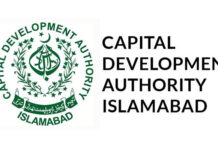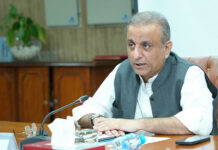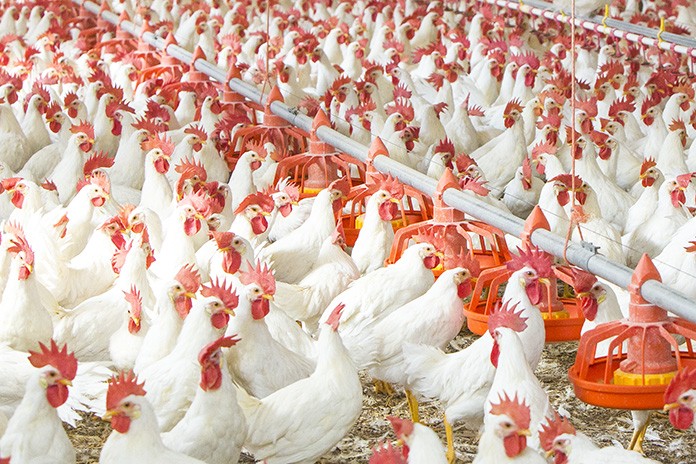Poultry is one of the fastest-growing industries in Pakistan with investments of about Rs1.1 trillion.
According to the Pakistan Poultry Association (PPA) report, the industry is the largest agro-based segment, generating employment and income for about 1.5 million people directly and indirectly.
The sector is growing at a fast pace of 10-12% per annum. At present, around Rs190 billion worth of agriculture products are being used by the poultry industry, speeding up the growth in the agriculture sector.
There are estimated 15,000 poultry farms throughout the country with their capacity ranging from 5,000 to 500,000 broilers. Pakistan’s poultry industry produces 1,245 million kilograms of chicken meat annually.
Ali Hasnain, a supervisor of the poultry sector, said that Pakistan’s poultry industry was no less than the international standards. “The poultry industry meets 50% of the total demand for meat in the country, and the rest is met by other meat products like beef, mutton and fish.”
“With the introduction of advanced technologies, more investments are coming around to cater to market needs and earn handsome revenues,” said Ali Hasnain, adding the poultry industry still had a lot of potential to contribute to the economy.
As per the PPA report, meat consumption per capita in Pakistan is less than the developed countries. The consumption of meat and eggs per capita is 6.2 kilograms and 56 eggs annually. In the developed world, the per capita meat consumption is 40 kilograms and 300 eggs annually.
According to the World Health Organisation, a person needs 27 grams of animal protein per day, while most people in Pakistan only consume 17 grams.
To meet the international standards of meat consumption, the supply and production need to be increased and prices need to be brought down so that consumers can get the required meat and egg consumption levels. An increase in production will certainly require more investments in the industry.
To boost production and bring down product rates, imports of poultry-related equipment should be exempted from duties and taxes.
In addition, as growers increasingly need land to establish sheds, the government should provide state land to investors at nominal rates to generate investments and more production.
Haniful Hassan, owner of a poultry farm, said that the current increase in prices of chicken was due to rise in prices of poultry feed. “The price of a feedbag has risen by 900 per bag in the last five months. We want the government to bring down the poultry feed rates to offset the price spiral,” he added.
Haniful Hassan called for establishing poultry research institutes, production directorates and a federal poultry board to provide research and training to farmers.
The government should also ensure easy availability of loans to people related to the industry.
























